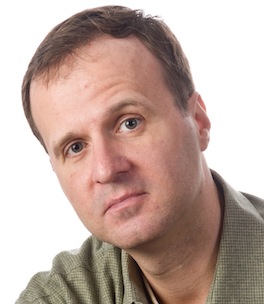Special to WorldTribune.com, March 28, 2022

Corporate WATCH
Commentary by Joe Schaeffer
Technocracy is on the ascent in the Western world to an astonishing degree, as the coronavirus hysteria so vividly revealed.
Messenger RNA vaccines are just the tip of the iceberg. Bioengineered food, genetically modified mosquitos, the transgender phenomenon and the constant drum-beating over the need to combat “climate change” highlight modern man’s audacious attempt to control every element of life on Earth.

Right up to and including the end of life: Death, the logical extension of multinational stakeholder capitalism.
The rise of euthanasia in the monolithic effort to lasso nature using technology is not only unsurprising. It is fully to be expected.
News broke in late March of the Feb. 11 deaths of two American sisters, one a palliative care doctor and another a nurse, who traveled from Arizona to Switzerland to end their lives in a euthanasia clinic.
The pair had no apparent pressing health or personal problems, family members said, yet they flew to Europe to kill themselves much like one goes to the supermarket to buy asparagus.
“Why would you leave your jobs, your home, your loved ones, just abandon everything?” Cal Ammouri, brother of Lila Ammouri and Susan Frazier, asked aloud in an interview with UK newspaper The Daily Mail. “I just want some answers.”
Our technocratic society is being driven by what can only be called a religious sense of man’s ability to control creation. There is a term to describe devotees of this modernist faith. The word is humanist.
For a movement that is supposed to be about maximizing human potential, there sure is a lot of morbidity.
Last October, WorldTribune documented the connection between humanism and the ruling elites’ vaccination push.
The American Humanist Association has long championed euthanasia. In 2010, it mourned the death of Dr. Jack Kevorkian, the infamous assisted-suicide advocate who became a cause celebre in the 1990s.
“Dr. Kevorkian was given the Humanist Hero Award by the American Humanist Association in 1994,” the group wrote upon his death. “The American Humanist Association became one of the first national organizations to support end of life choices in a 1974 statement.”
Last summer, this same AHA bestowed its “Humanist of the Year” award on none other than Dr. Anthony Fauci, chief White House medical adviser and the face of federal coronavirus social curbs for millions of Americans.
Fauci warmly accepted the award. “This is such a wonderful honor, and with deep appreciation, I accept the Humanist of the Year award from the American Humanist Association,” a grateful Fauci exclaimed in a video address to the organization.
These are the people in positions of power in the West today.
In 1907, Robert Hugh Benson, a Roman Catholic priest, wrote an apocalyptic novel called “Lord of the World.” While the plot is a bit lacking and ultimately disappointing, Benson’s keen ability to envision much of 21st-century society is nothing short of remarkable. Benson “predicted inter-city air travel in ‘velors’… electric billboards, globalized finance, rapid communications, atomic bombs, and the world progress of Marxism and world war,” Father George W. Rutler, a Catholic priest and author, writes.
Benson penned a chillingly tranquil 1907 description of a futuristic euthanasia clinic in our glorious World of Progress:
She had taken with her enough money to enter one of the private homes furnished with sufficient comfort to save from distractions those who had been accustomed to gentle living: the nurses had been pleasant and sympathetic; she had nothing to complain of….
There rested upon [a table] a white-enameled box, delicately painted with flowers. From this box emerged a white flexible tube with a broad mouthpiece, fitted with two leather-covered steel clasps. From the side of the box nearest the chair protruded a little china handle.
“Now, my dear,” began the nurse quietly, watching the other’s eyes turn once again to the window, and then back — “now, my dear, you sit there, as you are now. Your head right back, please. When you are ready, you put this over your mouth, and clasp the springs behind your head… So… it works quite easily. Then you turn this handle, round that way, as far as it will go. And that is all.”
And here is The Daily Mail’s account of the Pegasos Swiss Association euthanasia clinic in Basel:
The clinic, which was established in August 2019, has a neat and unassuming white exterior, with wooden shutters.
It is three stories high, with a hairdresser also occupying its first floor. There is no obvious indication outside that the building is also home to an assisted suicide facility.
Pegasos’s waiting room is equally low-key, and resembles the lobby of a doctor’s surgery, or hairdressers. It has soothing white walls, mid-century designer furniture and plants as well as lights to further enhance its calming vibe….
Pegasos’s death rooms are intimate, and at least one appears to be windowless, or have its curtains drawn for privacy….
When the time comes, patients are instructed on how to kill themselves. They can either select a lethal drink or death through an intravenous drip. A doctor will hook the patient up to the drip, to [e]nsure the needle is inserted correctly, but the patient must push a notch to let its deadly contents flow into their body.
As WorldTribune noted in August, euthanasia is surging in Canada, a nation saddled with a government that has implemented a particularly harsh Jab coercion system:
Here’s a statistic that has flown under the radar amid the greater chaos of 2021:
Nearly 7,600 Canadians chose to die via MAiD (medical assistance in dying) in 2020, an increase of 35 percent over the previous year, the latest numbers released by Health Canada show.
The above excerpt comes from a July 16 article posted by Canadian news site The Catholic Register. The publication also writes:
At 7,595 deaths in 2020 — up from 5,660 in 2019 — that means about 2.5 percent of all deaths in Canada were people who chose an assisted death. These numbers were found in Health Canada’s second annual report on assisted suicide, which was released June 30.
The 1974 American Humanist Association statement was titled “A Plea For Beneficent Euthanasia.” It centered on unbearable suffering by the terminally ill:
We believe that our first commitment as human beings is to preserve, fulfill, and enhance life for ourselves and our fellow human beings. However, under certain conditions, a meaningful or significant life may no longer be possible. It is natural for human beings to hope that when that time comes they will be able to die peacefully and with dignity. When there is great distress and the end is inevitable, we advocate a humane effort to ease the suffering of ourselves and others, without moral or legal recriminations.
Fast forward 48 years, and here is how far down the slippery slope we have slid. The Daily Mail stated:
Pegasos has no required waiting period for assisted suicide but does require consultations to be completed.
“Pegasos believes that for a person to be in the headspace of considering ending their lives, their quality of life must be qualitatively poor,” the company explains on [its] website.
“Pegasos accepts that some people who are not technically ‘sick’ may want to apply for a [Voluntary Assisted Death]. But this does not mean the person is ‘well.’
(Assisted suicide patient) Professor David Goodall was one of these people.
“He was not sick but his eyesight was failing him, as was his mobility. Old age is rarely kind. The decision to end one’s life is an intensely personal one.
“Pegasos makes every effort to understand fully the unique circumstances of everyone who makes contact with us.”
“No, it is not necessary to be terminally ill to be accepted for a VAD at Pegasos,” the company flatly declares.
For several decades our culture has hammered home the troubling message that instant solutions can be provided for complex problems. The end-of-life embodiment of this miracle pill mindset is the euthanasia clinic. Unlike pharmaceutical television ads that have been mocked for mentioning horrifying side effects in casual asides, death isn’t a potential outcome of this treatment. It is the prescribed permanent result.
About . . . . Intelligence . . . . Membership
